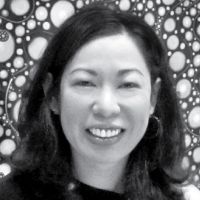Why Pancho Villaraza hates lawyers

MANILA, Philippines - You never know really when lawyer Pancho Villaraza is joking. When he says “Lawyers are disgusting,” you have a feeling he is only half-joking. But when he says, “Lawyers don’t lie, it’s the clients who lie,” you know that is a really, really good joke, the kind you get up from your seat for. So I told him, “Yeah, and journalists don’t make mistakes, it’s the sources who do.”
Anyway, I posted this repartee on the wall of a Facebok page I follow, Overheard in the Newsroom. A day later, Overheard in the Newsroom reposted it, and it was now seen by its thousands of followers.
Hundreds of journalists gave it the thumbs up and reacted to the post. This is the kind of reaction a lawyer gets when he’s being sarcastic about his own profession — with a journalist — from journalists.
Villaraza always talks candidly, whether it’s about his wife Sally, whom he met at the UP Main Library when they were students, and married when he was 25, or his four children —Angelique, who’s putting up a children’s garments business in France; Stephanie, a homemaker; Aaron, a scientist; and Abigail, whom he fondly describes as a “consumer.”
When it comes to his law practice, Villaraza has done it all — from pro bono cases to presidents of the republic. Here, Villaraza talks about the law, his 31-year practice with CVC, and his former client, GMA.
What’s the best lawyer joke you’ve heard?
None. I don’t like lawyers, they’re disgusting.
Did you ever regret representing President Arroyo?
Life would have been better if we didn’t.
How do you feel about CVC being associated with the Arroyos?
We’d rather not comment. You cannot change the past, right now we’re not there anymore.
What’s your biggest regret, during those 10 years of Arroyo administration.
Well, she had the chance, and she blew it.
Who did you vote for last year?
I didn’t vote, I went to Australia. I stayed away. (Laughs) It’s true, you can even check my passport. Lawyers don’t lie, it’s the clients who lie to their lawyers.
Yeah, right, and journalists don’t make mistakes, it’s the sources who do.
No, journalists are always lying, they always print the wrong things (laughs).
What was it about the law that you loved at the outset?
It fascinated me, having to fight for justice and causes of other people. When we take on a cause, we see it through to the end.
Like what causes?
Too many but one would be the breakup of the telecom monopoly of PLDT during the Ramos administration. We were maligned by media for doing that. The war was from 1992 to ’94. It was a bitter fight. Of course, the dominant player, the monopoly, resisted it. We were demonized in media and they even started believing what they were printing. We became monsters.
It used to take 10 years to get a phone line.
Even longer. Sometimes it’s the grandmother who applied when she was 18 and it’s the granddaughter who gets the line. And it took a Lee Kwan Yew to mention the need in a speech at Manila Hotel. He was a guest of President Ramos. He said he didn’t understand why the Philippines was having such difficulty progressing, and he said it was probably because of the very poor telecommunication system. Because half the time, the phone was busy and the other half, the phone was out of order. That offended FVR. He said, what’s the reason for all of this? It was the monopoly, the arrogance of the monopoly. And so he gave the instruction to break it up.
Did CVC really employ the strategy of keeping PLDT busy with lawsuits while you were breaking up the monopoly?
Yeah. Meanwhile, we were sort of guiding NTC to start opening it up to new players. Because if you encourage competition, people will get up on their toes and service improves, the quality improves, the prices go down. The demand was there, the service wasn’t being provided.
How did you feel when Justice Tony Carpio left The Firm?
We were all crying, we were very sad, because we knew it was permanent.
Was it a decision he consulted with you?
Yes, of course. We discussed it and he said it was his career path, it would be good for him. So he left.
What about you, I’m sure there have been offers to join the government.
Yes, but I have no interest in serving in the government. I will make too many enemies, as it is I already have many enemies (laughs).
What were the early days of CVC like?
It wasn’t easy. We made a lot of sacrifices. We were only so few, but we had a stable of clients who were regular and good-paying clients. In fact, when we needed credit, we went to Philamlife. Rodrigo delos Reyes, who was then the chairman, just asked me, “Who are your clients?” I said, this, this and this. It was what impressed him, that we had quality clients. Otherwise, clients will not go to a lawyer they cannot trust. On that basis, he gave us a P1-million loan.
Who were these clients?
I don’t think we can disclose that, but a good number of them were Fortune 500 companies, banks, and some of the more prominent families in the Philippines.
What do you hate about the law?
To begin with, it’s backward, it does not keep up with the times, and it’s very conservative. So sometimes it fails to address the needs of the present. Law deals with past things, but the future is seldom anticipated by the law. So sometimes they’re no longer applicable. Our penal laws, for example, are very backward, even discriminatory. You have discriminatory provisions with respect to crimes committed by husbands, by wives.
Who would you say has been our best Supreme Court Justice?
There have been many in the past up to the time of Fred Ruiz Castro. But martial law in 1972 warped the quality of the institution because patronage and favoritism came into the picture with Marcos filling up the Supreme Court with his classmates.
Who was the Chief Justice at the time?
Chief Justice Enrique Fernando, who was better known for his umbrella, di ba? Pinapayungan si Imelda (laughs).
Who would you hold an umbrella for?
My wife. And that’s on the record.
What’s the one thing you want to teach your young lawyers?
The value of hard work. There is no substitute for the value of hard work. Nothing ever comes easy and everything has to be merited through hard work and perseverance. We never give up. I guess that’s been the guiding principle that has carried us through these years. We are very persistent.
How old were you when you opened The Firm?
I was 28, with four kids. I had four kids before my fourth wedding anniversary because I had twin girls.
Was it difficult on your wife or on you that you were raising a young family?
Of course. It’s a question of balancing career and family. It can be done, we did it and others are doing it.
Does your family do a lot of traveling?
Yes, the last place we went to was Scandinavia. We also went around Southern Germany, in summer it was -15 degrees without the wind. It’s the land of perpetual ice and snow. We also went to Oberammergau to watch the Passion Play, which is mounted every 10 years. The whole town was spared from the Black Plague of Europe, not one resident died, so they made a pledge that they would put up the play every decade. It’s a cast of thousands, every single one in the town participates. The play lasted for five hours — in high German but you have the translation. The intermissions are for lunch and dinner! They hold it for 105 days, 10,000 seats all occupied at every performance. It was a five-week-long trip. Before that, we went to Australia. In between that, short trips around Asia,
What do you think you did right as a dad?
I made my children very religious, we’re Opus Dei. I’ve brought them to the Vatican for the beatification of Mother Teresa and Monsignor Escriva. We’re going to the beatification of Pope John Paul II on May 1.
What would you say were the most difficult years of CVC and the most successful years?
The first five years were horrible because the industry was dominated by one law firm that had links with President Marcos and everybody else was getting the crumbs. When Edsa 1 happened, things changed. It became a more free enterprise and so new talents began to surface, new challenges were created and new problems could be confronted. It was a good opportunity to shine and we did.
The fondest years for you?
The Ramos years. The problems were challenging, but much of the task we were given had a national impact and national interest was at stake. While it was difficult — we were working 18 hours a day, the whole firm, supporting the policies of FVR. It was at the time that I made the rule that we will never take on a case against the government. We took a side — and that administration has yet to be matched. Those were the golden years.
That policy still stands?
No, Ramos is no longer there. So we can sue government now.
Have you done that?
Yes, tax cases for example, clients being assessed unfairly.
What kind of cases do you like working on?
Anything that is very difficult, especially ones that other law firms have refused to take. That’s what interests me (laughs).
You also have pro bono cases?
Many, you wouldn’t believe it. And it’s all kinds of cases.
How do you decide which would be pro bono?
If it’s really meritorious, naapi na talaga.
Even if it’s a middle-class client?
Doesn’t matter. It’s the cause we look at.
What’s your favorite law-related movie?
None. I hate lawyers. They’re disgusting, di ba I told you? I like the Jason Bourne movies, that type.
What do you think is the biggest problem of President Aquino?
Reviving the institutions that were ruined by the previous administration — and that’s nearly all. They were all equally damaged — Congress, Comelec, the courts — grabe.
Who do you think was our best president?
FVR. He had a plan on how to improve the country and he carried it out. He had the pillars of reform that he developed and he put together a competent team to make those reforms happen. So I think in terms of advancing…during his time, the country really benefitted. I consider those years the golden years of the Philippines since the 1950s.
Who do you think has been the best First Lady or First Gentleman?
Ming Ramos, hands down. There’s no comparison. She knew her role and she played it right.
What do lawyers talk about when you go out?
Office jokes. We discuss some problems we’re handling, brainstorm. I never stop working even when I’m abroad.
You think there will ever be a female name partner in this firm?
Eventually yes. It’s up to the future partners to decide. I don’t see that as impossible.
UP Law had some pretty famous professors, from Miriam Defensor to Haydee Yorac. Who was your favorite professor when you were a student?
Maria Clara Lopez Campos, she was the nicest professor I ever had. One time, I even asked her for money because I had a date and I was broke. She got her purse and gave me money! She taught corporate law. She was so nice, she was like a mother to everybody. She was strict and you would really learn from her, but she treated us like sons. She’s very sick now.
Do you think everybody should create a will?
No, give it away during your lifetime para wala ng problema. Don’t take it to your grave para walang away-away. Otherwise, it will only be those nasty, disgusting lawyers who will benefit.
Oo nga, bwisit na lawyers na yan.
Oo, I hate them.
In the States, I think the most hated lawyers are the ambulance chasers.
Also the demon lawyers — they put together class suits against big corporations.
Are there angel lawyers?
Yeah, like us.
Akala ko ba disgusting kayo?
No, I find them disgusting.
What’s the biggest myth about lawyers?
That they are liars. I told you, it’s the clients who lie.















